Who we are
We are a true local artisan bakery established in 2012 on Clerk St, Edinburgh.
We have 3 passionate, skilled bakers, who make all our production daily at the back of the shop.
We make bread slowly, gently and with traditional methods from France, Scotland, Germany, Scandinavia, Italy and beyond.
 We patiently ferment doughs, sometimes over days, to bring out differnet flavours and marvellous nutritionnal and conservation properties.
We patiently ferment doughs, sometimes over days, to bring out differnet flavours and marvellous nutritionnal and conservation properties.
We turn our croissants and shape our cinnamon buns.
We roast our vegetables and make our own tomato sauce to put in our Fougasses and Pizzettas.
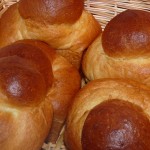 Really, all you see in the shop is made here, from scratch, using simple and natural ingredients.
Really, all you see in the shop is made here, from scratch, using simple and natural ingredients.
We work with the weather and the seasons…and we just love it, and love to share with you the taste of real bread!
Our bread making choices:
Bread m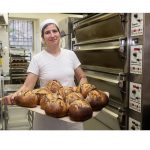 aking starts with the choice of ingredients: Flour, water, salt and ferment (sourdough or (very small quantities) of baker’s yeast).
aking starts with the choice of ingredients: Flour, water, salt and ferment (sourdough or (very small quantities) of baker’s yeast).
Our flours contain no additives or improvers, nor do we add any. Our high extraction (“wholemeal”) flours are organic and our wholeal wheat is stoneground, which means it is richer in nutrients since it incorporates the germ of the grains. For 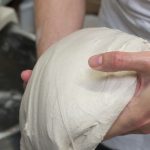 our buns, we use free range eggs, real butter, and little sugar and yeast…
our buns, we use free range eggs, real butter, and little sugar and yeast…
The process then is to mix the ingredients into the dough – we do this gently, as it preserves the taste (to the detriment of the volume of our loaves).
Nex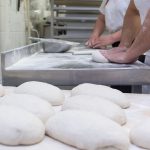 t the dough needs to ferment. We use different fermentations to develop various tastes and textures. As side benefits, long fermented bread have better conservation and are more nutritious and easy to digest!
t the dough needs to ferment. We use different fermentations to develop various tastes and textures. As side benefits, long fermented bread have better conservation and are more nutritious and easy to digest!
Then, into the oven! Our bread is “well fired”, because the spectrum of colors you see on the crus t participate greatly in the spectrum of taste of the loaf;
t participate greatly in the spectrum of taste of the loaf;
It is not finished yet. Just out of the oven, the bread needs to rest and breathe (the French term is “ressuer”), until it is properly cooled down. From then on, it will continue to evolve. Although a baguette is most crispy a couple of hours after baking, most of 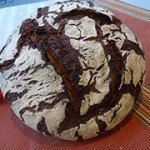 our breads need much more time to reach their optimum. They continue to evolve over the next few hours and even days. Contrary to popular belief this is not necessarily to the detriment of the bread. The best example is our Rye bread, which really improves over days – try it on the fifth day!
our breads need much more time to reach their optimum. They continue to evolve over the next few hours and even days. Contrary to popular belief this is not necessarily to the detriment of the bread. The best example is our Rye bread, which really improves over days – try it on the fifth day!
What happens to our leftovers:
We give our day’s leftover bread to charities – throughout the years these have been the Salvation Army, the Cyrenians, the Braidwood Centre, the Mosque’s food bank, SCOOSH (a local after school club, for healthy snacks for the kids), the food bank at the King’s Hall, Soup kitchens ran by Soul Food, Street fit Scotland….
We are always on the lookout for charities willing to collect leftover bread, so please get in touch if you’d be interested.
We also make croutons with day-before baguettes.
We’ve also sponsored in kind Liam, a young Scottish swimmer with an ambition to make it to the top Scottish level. He eats a lot of bread.
…And, yes, the Wee Boulangerie staff do eat a lot of bread, too.
We also know of a couple of pigs and hens, and even some sheep in Germany (!!) who retrieve what gets through this redistribution net. No food waste!
A bit about Real Bread Campaign:
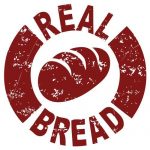
The Real Bread Campaign’s mission is to find and share ways to make bread better for us, better for our communities and better for the planet.
We support them with all our heart!
It is at times difficult to distinguish marketing spin from what is really on offer when it comes to bread. A lot of additives and processing aids need not be mentioned on labels. There is no legal definition of “artisan”, “sourdough”and many other terms. There is not restriction on the processes used to make the bread, or their continuity.
In contrast, the Real Bread Campaign proposes a comprehensive definition of “Real Bread”, see https://www.sustainweb.org/realbread/what_is_real_bread/.
Our bread is Real Bread, and now you know exactly what you are eating.

